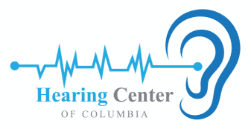Can Hearing Loss Be Reversed? When It’s Possible and When It’s Not
Noticing changes in your hearing often raises the question of whether it

By: admin | September 25, 2024
When it comes to your hearing health, having a trusted and reliable provider is crucial. You depend on them to care for one of your most important senses, expecting professional service that meets your unique needs. But what if this trust is broken, or if you’re not happy with the service provided? This is a situation many people face, but it’s not often talked about. Just like any other healthcare service, hearing care can sometimes fail to meet expectations, so it’s important to have a plan in place for identifying and responding to these challenges.
Spotting signs of subpar hearing care can be a subtle process. It’s not always about glaring mistakes, but more about a consistent pattern of less-than-ideal experiences. For example, you might notice that your hearing specialist isn’t taking the time to explain things clearly or doesn’t seem to fully understand your concerns. Maybe they’re not keeping up with the latest advancements in hearing technology or aren’t tailoring their treatment plans to your specific needs. These could all be signs that you’re not getting the level of care you deserve.
It’s also important to pay attention to how you feel after appointments. Are you leaving with more questions than answers? Do you feel like your concerns are being dismissed? If so, these could be warning signs that it’s time to consider switching providers.
Good hearing care is about more than just fixing a problem – it’s about helping you understand and manage your hearing loss in a way that works best for you. So, if something doesn’t feel right, don’t hesitate to seek out better care. After all, it’s your hearing health at stake.
In the world of hearing health, communication is a cornerstone. It’s the bridge that connects you and your hearing specialist, enabling a collaborative approach towards managing your hearing loss. This two-way street of sharing and understanding is pivotal. It allows your specialist to comprehend your unique experiences, while you gain insights into the strategies that can help improve your hearing abilities.
However, if there is a communication gap or breakdown, it can severely impact your hearing care journey. For instance, if you don’t express certain concerns or challenges, your specialist might not fully understand the extent of your hearing difficulties, leading to ineffective adjustments or recommendations. Similarly, if your specialist’s instructions or explanations aren’t clear to you, important steps in your treatment – like regular maintenance of your hearing aids or follow-up appointments – might be overlooked. Miscommunication can also lead to frustration on both sides, leaving you feeling unsupported and less likely to engage in your hearing care.
Without clear, open communication, opportunities for improving your hearing health can be missed. It’s essential that both you and your hearing specialist work together in a transparent manner, discussing any issues, clarifying uncertainties and making sure that your hearing treatment is as effective as possible. This collaborative approach helps ensure that your hearing loss is managed in a way that supports your well-being and quality of life.
When it comes to your hearing health, you want to be in the best hands possible. This means having a provider who not only has the necessary qualifications but also demonstrates a high level of expertise and skill in their field.
However, assessing your provider’s skill level can sometimes be challenging, especially if you’re not familiar with the ins and outs of hearing care. One solution is to ask about their experience and training during your appointments. You could also look up their credentials online or ask for patient testimonials. Remember, it’s perfectly okay to seek second opinions if you’re unsure about your current provider’s expertise.
If you’re not getting the care you expect from your local hearing specialist, it can feel frustrating and leave you wondering whether to address the concerns or switch to a new provider. If you feel your concerns are being overlooked or your specialist isn’t meeting your needs, the first step is often to have an open conversation. Expressing what isn’t working for you can sometimes lead to better understanding and adjustments that improve your care.
However, if after discussing your concerns there is no noticeable improvement, it might be time to consider switching to another specialist. Hearing care should always involve personalized attention, a collaborative approach and adjustments tailored to your specific experiences with hearing loss. If you’re not getting that level of care, seeking out a specialist who values open communication and makes you feel supported could make a significant difference in how well your hearing is managed.
You deserve to feel confident in the hearing care you receive, and finding the right specialist is an important part of that process. Prioritizing your comfort and ensuring your concerns are addressed can lead to more effective treatment and a better overall experience with your hearing health.
Expressing your concerns to your hearing specialist in a constructive and effective manner can be challenging. The first step is to be clear and concise about what’s bothering you. Write down your concerns beforehand, focusing on specific instances where you felt your needs weren’t met. This preparation will help you stay focused during the discussion and ensure that all of your points are addressed.
Next, approach the conversation with a positive mindset. Remember, the goal is to improve your care, not to assign blame. Be respectful but assertive in expressing your dissatisfaction and suggest ways that the service could be improved. By doing this, you’re not only advocating for better care for yourself but potentially helping other patients who may be experiencing similar issues.
Expressing dissatisfaction can feel challenging, but it’s an essential part of ensuring quality hearing care. So go ahead – speak up for yourself! You deserve nothing less than the best when it comes to managing your hearing health.
Seeking a second opinion can be a beneficial step, especially if you’re experiencing persistent dissatisfaction with your current provider. It provides a fresh perspective and could potentially open up new avenues for managing your hearing loss.
Getting a second opinion is not about questioning your current provider’s competence but ensuring that you’re receiving the best possible care. It’s an opportunity to gain more information, validate your concerns and feel more confident about the treatment decisions you’re making.
However, knowing when to seek this additional input can sometimes be challenging. A good rule of thumb is to consider it if you feel your concerns are not being addressed adequately or if the proposed treatment plan doesn’t seem to be working effectively. Remember, it’s about prioritizing your hearing health and feeling assured in the care you receive.
Choosing a new hearing instrument specialist is a critical decision that requires careful consideration. After all, you’re entrusting them with your auditory well-being. So, what should you look for in a potential new provider? Here are some key traits to seek:
Remember that this change could potentially lead to improved outcomes for your hearing health. Your well-being is worth taking this step towards better care!
Choosing a new hearing specialist is an important decision, and asking the right questions can help ensure you find the best fit for your needs. One of the first things to ask is about their experience and qualifications. Knowing how long they’ve been practicing and their expertise with your specific type of hearing loss can give you confidence in their ability to provide appropriate care.
It’s also a good idea to ask about the types of hearing aids they work with and what brands they offer. This can help ensure they have access to the latest technology and can recommend devices that suit your lifestyle. Additionally, asking about their process for fittings and adjustments is key – will they take the time to fine-tune your hearing aids based on your feedback, and how often can you schedule follow-up visits for adjustments?
Lastly, inquire about their communication style and how they involve you in the decision-making process. Do they encourage open dialogue and make you feel comfortable voicing concerns? Understanding these factors will help you feel more confident in your choice of a hearing specialist.
Stepping into a new hearing health professional’s office for the first time can be nerve-wracking. The unfamiliar environment, coupled with the anticipation of meeting a new specialist, can make anyone feel a bit uneasy. One common challenge you might face is not knowing what to expect or how to prepare for this initial visit.
To address this, it’s helpful to have a plan in place. Start by noting down all your hearing-related concerns and any questions you might have about your hearing loss management. This will ensure that you don’t forget to discuss any important points during your appointment. Also, consider bringing along any relevant medical records or reports from your previous provider – these can provide valuable information for your new specialist and aid in forming an effective treatment plan.
Remember, this first visit is about getting acquainted with your new provider and setting the foundation for future interactions. So be open about your expectations and don’t hesitate to ask questions – after all, this is about securing the best possible care for your hearing health!
The decision to seek improved care is a testament to your commitment towards better auditory well-being. Remember, this journey doesn’t have to be undertaken alone. At Hearing Center of Columbia, we’re here to support you in every step towards optimal hearing health. Our team of experienced professionals strives for excellence in patient-centered care and can provide the understanding and expertise that you deserve.
If you’re considering making a change or simply need more information about managing your hearing loss, we invite you to contact us at our Columbia, TN office by calling (931) 548-1166. We’re ready and eager to assist in improving your quality of life through comprehensive and compassionate hearing care.

Noticing changes in your hearing often raises the question of whether it
By: admin | January 19, 2026

Exercise benefits your body in ways that extend beyond muscle strength and
By: admin | November 18, 2025

When hearing difficulties begin, it can feel challenging to adjust to the
By: admin | September 24, 2025
